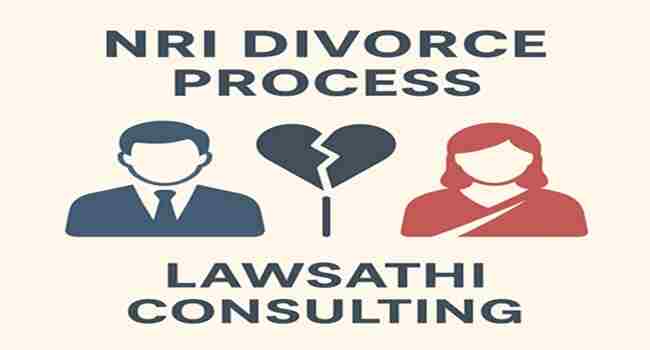
Expert Legal Support for Divorce in Delhi: Guide & Process
Divorce is never an easy decision. Yet, when a marriage stops working, the law offers clear remedies that help couples move forward. With the right legal support, the entire process becomes smoother, faster, and stress-free. This guide explains what divorce means, types of divorce, the process for mutual and contested divorce, required documents, applicable laws, and important FAQs. Legal Support for Divorce in Delhi.
About Marriage
In India, marriage is a sacred and legally recognized union between two individuals, establishing a lifelong partnership based on mutual consent, cohabitation, and social obligations. It creates legal rights and duties between the spouses and their families, including inheritance, maintenance, and legitimacy of children. While its social and religious significance varies across communities.
What Is Divorce?
Divorce is a legal process that ends a marriage. Once the court grants a divorce, both partners gain the freedom to live separately. They can also remarry if they wish. Although divorce sounds stressful, proper guidance helps people navigate it confidently.
Types of Divorce in India
Indian law offers two major types of divorce. Each type follows a different procedure, so choosing the right one is important.
- Mutual Consent Divorce
Both spouses agree to end the marriage. Because there is no dispute, the process moves quickly. Couples prefer this option because it saves time, money, and emotional strain.
- Contested Divorce
One spouse files for divorce without the consent of the other. As a result, the case involves allegations, evidence, and courtroom hearings. This process takes longer, yet the law protects the rights of both parties throughout.
Process of Mutual Divorce in Delhi
Mutual divorce is simpler. The couple agrees on alimony, child custody, maintenance, and property settlement before filing.
Step-by-step process: Legal Support for Divorce in Delhi
Both spouses decide to end the marriage.
Draft a joint petition under Section 13B of the Hindu Marriage Act or under applicable personal law.
File the petition before the Family Court in Delhi.
First motion statement: Both spouses appear in court.
Cooling-off period of 6 months, although courts often waive it when both parties request it.
Second motion: The court records final statements.
Court grants the divorce decree, and the marriage legally ends.
Since both partners cooperate, the procedure generally finishes within 1–6 months if the cooling-off period is waived.
Process of Contested Divorce in Delhi
Because contested divorce involves disagreements, the procedure takes more time.
Step-by-step process:
One spouse hires a lawyer and files a petition based on legal grounds.
The court issues a notice to the other spouse.
Both partners file written statements and replies.
The court conducts evidence, cross-examination, and hearings.
The Hon’ble judge evaluates all facts.
The court grants or rejects the divorce based on merits.
Although the process is longer, strong legal representation helps protect your interests at every stage.
Documents Required for Divorce in Delhi
You must prepare several documents before filing:
Marriage certificate/ Marriage Invitation Card
Identity proof of both spouses
Passport-sized photographs
Current and permanent address proof
Marriage photographs
Details of income and assets (for alimony/custody matters)
Proof of separation (if available)
Any relevant agreements between spouses
Since divorce involves legal scrutiny, well-prepared documents speed up the case.
Different Laws for Taking Divorce in India
Different communities follow different marriage and divorce laws. Therefore, the right law depends on your personal background.
Major divorce laws in India:
Hindu Marriage Act, 1955 – Hindus, Buddhists, Sikhs, Jains
Special Marriage Act, 1954 – Inter-faith or civil marriages
Indian Divorce Act, 1869 – Christians
Muslim Personal Law – Muslims (along with the Dissolution of Muslim Marriage Act, 1939)
Parsi Marriage and Divorce Act, 1936 – Parsis
Foreign Marriage Act, 1969 – NRI marriages
Because every law has different conditions, experienced legal assistance becomes crucial.
Why You Need Expert Legal Support for Divorce in Delhi
Delhi courts follow strict procedures. Therefore, expert legal support ensures:
Proper drafting of petitions
Accurate legal grounds
Fast processing of documentation
Skilled representation during hearings
Protection of child custody, alimony, and property rights
Guidance for NRI or overseas spouses
With professional help, you avoid errors and complete the process without unnecessary delays.
FAQs on Divorce in Delhi
- How long does a mutual divorce take?
It usually takes 1 to 6 months if the court waives the cooling-off period.
- Can NRIs file for divorce in Delhi?
Yes, NRIs can file if the marriage was solemnized or registered in India.
- What are valid grounds for a contested divorce?
Cruelty, desertion, adultery, conversion of religion, mental disorder, venereal disease, and more, depending on personal law.
- Can one spouse stop a mutual divorce?
Yes, either spouse can withdraw consent before the second motion.
- Do I need a lawyer for a divorce?
A lawyer ensures the process remains accurate, quick, and legally strong.
- Which court handles divorce in Delhi?
Family Courts across Delhi handle divorce matters under various personal laws.
Conclusion
Divorce is a significant life decision, yet timely legal support makes the journey easier. Whether you want a mutual divorce or need to fight a contested case, the right lawyer ensures fairness, clarity, and peace of mind. With proper guidance, you can protect your rights and move forward confidently.
Disclaimer: This article is for educational and informational purposes only. It provides a general understanding of legal remedies but does not constitute legal advice. For specific legal guidance, you can consult a legal expert.



